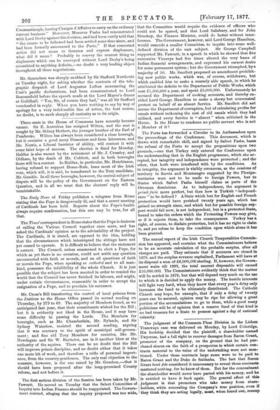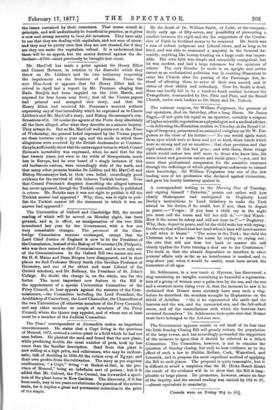The judgment of the Common Pleas Division in the Lisbon
Tramways case was delivered on Monday, by Lord Coleridge. His lordship decided that the plaintiff, a shareholder named Twycross, had a full right to recover damages from Baron Grant, promoter of the company, on the ground that he had pur- chased shares on the faith of a prospectus in which certain con- tracts material to the value of the undertaking were not men- tioned. Under these contracts large sums were to be paid to Baron Grant and the Duke de Saldanha. The fact that Baron Grant bond fide considered it unnecessary to reveal these contracts mattered nothing, for he knew of them. But for the concealment the shareholder would never have parted with his money, and he is entitled to have it back again. The general effect of this judgment is that promoters who take money from share- holders, while concealing the Company's true position, even if they think they are acting legally, mug, when found out, recoUP
the leases sustained by their customers. That seems sound in jwinoiple, and will undoubtedly be beneficial in practice, as it gives a new and strong security to bond fide investors. They have only to see that they are dealing with capitalists, and not men of straw, and they may be pretty sure that they are not cheated, for if they are they can make the capitalists refund. It is understood that there will be an appeal, but the money decreed against the de- fendant-1700—must previously be brought into court.



































 Previous page
Previous page